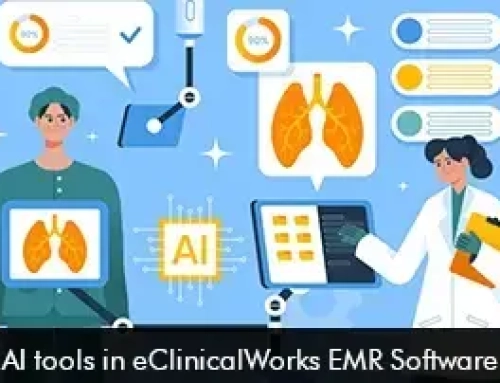Healthcare providers’ top priority is to offer high-quality patient care. They don’t have the time to worry about the practice’s financial and administrative workflows. If doctors also manage these tasks they will feel overburdened ultimately leading to physician burnout. For this very reason, many hospitals and clinics have utilized a Practice Management (PM) software solution.
What is a Practice Management software system?
PM software is a robust software system designed to streamline daily administrative and financial tasks to improve productivity and efficiency levels. The software helps to automate and manage patient scheduling, tracking and take care of medical billing tasks such as submission of insurance claims and the management of charge capture.
Benefits of Deploying a Practice Management (PM) Software
A practice management software solution can help both practices and patients. Medical practices can ensure that staff members can concentrate on other important tasks and on the other hand patients will be satisfied with the error-free services offered to them. It’s a win-win situation. The following advantages can be realized,
- Automation of tedious and repetitive tasks.
- Boosts efficiency levels.
- Reduced time spent on administrative tasks.
- Can reduce the issue of no issues when the appointment reminder feature in the software is used.
- Reduced errors.
- Simpler access to electronic health records software.
5 things Important in a Practice Management Software
Here are five things that need to be present in the software to ensure that any practice maximizes the benefits as they use it.
- Automatic billing – When billing procedures are automated using a PM software system it can result in reduced errors and efficiency in billing tasks to keep patients satisfied. The risk of improper payment is reduced and manual review processes can be error-prone. Through powerful billing features offered by the practice management software, the revenue stream can improve.
- Security features in the software safeguard patient privacy – The threat of cyber-crimes is rising and data breaches in the healthcare industry are also escalating. In such circumstances, it is crucial to ensure that healthcare organizations use the best security practices and protocols to ensure the protection of patient data and information. Practice Management (PM) software has security features and is HIPAA-compliant to preserve patient privacy. According to the American Medical Association, healthcare organizations need to enhance cyber defenses to prepare for any potential cyber-attacks.
- Patient scheduling – Traditional methods of appointment scheduling are inefficient. Practices should look for practice management software that offers the capability of appointment scheduling with a patient portal platform. The appointment scheduling feature helps to streamline the booking process and keeps patients empowered as they can easily book, cancel, or reschedule appointments with a click.
- Effective patient information management – A good practice management software has patient information management tools. Doctors and staff members will have easy access to patient details such as patient data, medical history, and treatment details. The readily available information can facilitate clinicians to improve patient care.
- Pace-up insurance verification – A powerful PM software has an insurance verification capability that can speed up insurance verification and patient wait times.
AI in Practice Management Software
The use of Artificial Intelligence solutions in PM software systems can optimize and simplify operational and administrative duties in a healthcare setting. Numerous tasks, including appointment scheduling, patient record management, billing procedures, and data analysis can be automated by AI-driven technologies.
Examples of Artificial Intelligence in Practice Management (PM) Software Solutions
The following are some instances of how AI is incorporated into practice management software:
Appointment Scheduling Optimization
Artificial intelligence systems in PM Software utilize past data, patient preferences, and practitioner availability to forecast and recommend the best times for appointments. This lowers wait times and minimizes schedule conflicts.
Automated Administrative Tasks
AI tools free up staff time for more important patient care and concentrate on their well-being by automating repetitive administrative activities. These include updating patient records, reminding patients about appointments or medications, and managing insurance verifications.
Billing and Coding Assistance
Artificial intelligence (AI)-driven technologies facilitate correct diagnosis and procedure coding, minimize medical billing errors, and guarantee regulatory compliance. To avoid claim denials or rejections, these tools can also highlight possible problems.








